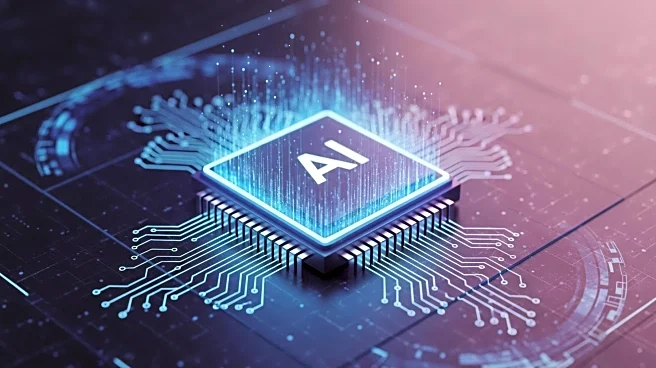What's Happening?
Anthropic has introduced Claude Sonnet 4.5, a new AI model designed to improve coding performance. This model is touted as capable of creating production-ready applications, marking a significant advancement from previous prototypes. Available through the Claude API and chatbot, Claude Sonnet 4.5 maintains the same pricing structure as its predecessor, Claude Sonnet 4. The model has gained popularity among developers and enterprises for its strong performance in software engineering tasks, with companies like Apple and Meta reportedly utilizing Claude AI models internally. Despite competition from OpenAI's GPT-5, Claude Sonnet 4.5 is claimed to offer industry-leading performance on several coding benchmarks.
Why It's Important?
The launch of Claude Sonnet 4.5 represents a significant step forward in AI-driven software development, potentially transforming how applications are built and deployed. By offering production-ready capabilities, this model could streamline development processes, reduce time-to-market, and enhance the reliability of AI-generated code. This advancement may benefit tech companies and developers by providing more efficient tools for coding tasks, potentially leading to increased innovation and productivity in the tech industry. As AI models continue to evolve, they could reshape the landscape of software engineering, impacting businesses and developers who rely on cutting-edge technology.
What's Next?
Anthropic plans to release the Claude Agent SDK, enabling developers to create their own agents using the same infrastructure that powers Claude Code. Additionally, a temporary research preview called 'Imagine with Claude' will be available for Max subscribers, showcasing the AI model's ability to generate software in real-time. As the AI industry remains highly competitive, companies are expected to continue rapid production cycles, launching new models frequently to maintain their edge. Stakeholders in the tech industry will likely monitor these developments closely, assessing the impact on software development practices and the broader AI landscape.
Beyond the Headlines
The introduction of Claude Sonnet 4.5 may have deeper implications for the ethical and security aspects of AI development. Anthropic claims improvements in the model's alignment, reducing sycophancy and deception, and enhancing resistance to prompt injection attacks. These advancements could address concerns about AI reliability and security, fostering trust in AI-driven applications. As AI models become more autonomous, ethical considerations regarding their deployment and impact on human jobs and decision-making processes may become increasingly relevant.









